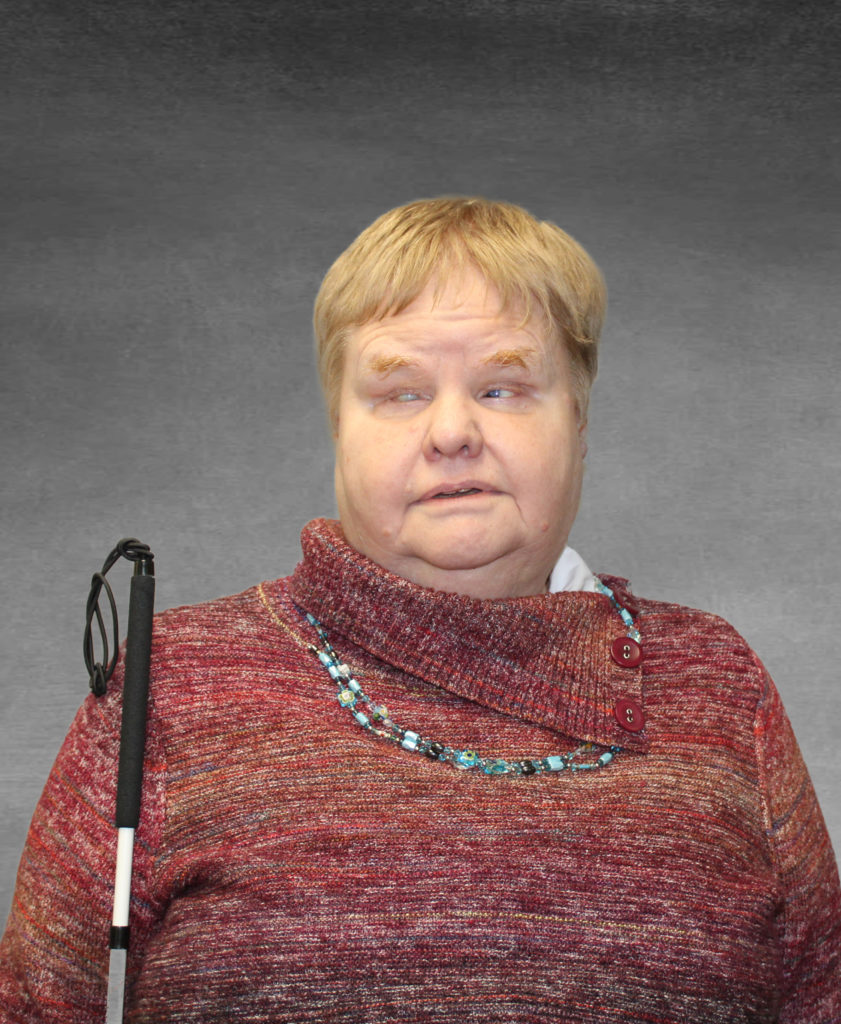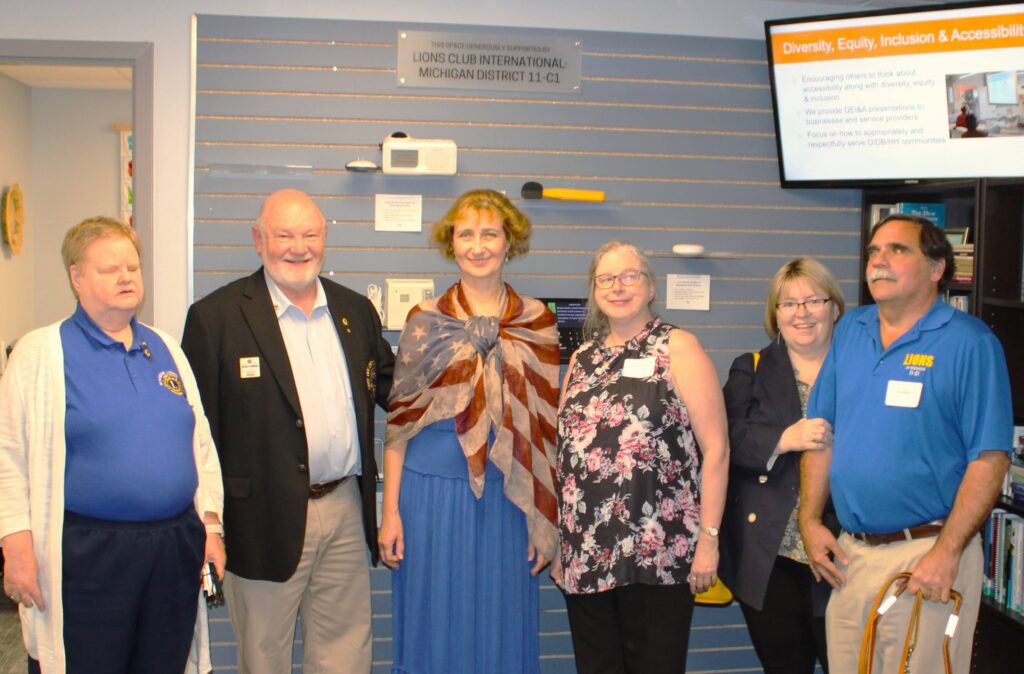Meet the Board - Charis Austin

As we work to provide equal communication access, education, and advocacy to the Deaf, DeafBlind, and Hard of Hearing in pursuit of all life’s opportunities, we are grateful to a wide range of partners, including our Board of Directors. We want to share more about them with you. In this installment of “Meet the Board”, we spend a little time with board secretary Charis Austin.
Charis Austin is involved in numerous local advocacy and community organizations, including Michigan Council of the Blind and Visually Impaired, Lions Club International and Altrusa International. Her goal, she said, is promoting accessibility.
In addition, because of her employment with the Association for the Blind and Visually Impaired, she also serves on The Rapid’s Board of Directors and recently became involved with the Grand Valley Metro Council Safety and Non-Motorized committees.
How did you first get connected to D&HHS?
At the time I was President of the Disability Advocates of Kent County Board of Directors. Deaf Etc., as it was then known, had space in that organization. Later on some people who are Deaf wanted to become involved with the Lions Club, and I wanted to make sure that they had an inclusive experience. I worked hard to make sure that there were interpreters available if they were attending events.
What’s one thing you love about being a D&HHS board member?
People who face sensory loss (vision and hearing loss) face similar communication issues. Our fight for equal access is similar. D&HHS staff and other members of the Board work to make things inclusive. We learn from each other.
What would be lost if D&HHS didn’t exist?
Without D&HHS there would not be an organization to help promote the need for equal communication, and there would not be a place for people recently experiencing hearing loss to learn about equipment that will improve access.
What’s one thing you wish people knew about D&HHS?
D&HHS has a very committed and hard-working staff who carries out the D&HHS mission with a small budget. I also want to give a shout out to the many interpreters who work very hard to provide communication access. The need for interpreters was the beginning of the organization.

